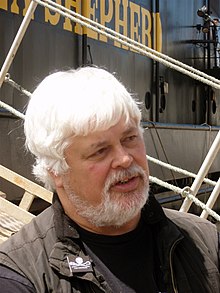The movie: Tsunami the aftermath is
the story tells us some about how people who still alive after
the tsunami suffered for their other family members who passed away during that
disaster that occurred at December, 2004. The tsunami hit the coast of Thailand (Thailand's
Phuket and Khao Lak) and 12 other countries coast. When the movie came
out, it is estimated that over 227,000
people were killed while 50000 bodies are still
missing. The director of the film is Bharat Nalluri, and this movie shows me
not only how beautiful is the nature and how many fun, relax, happiness that
the nature can give to human beings but also how a terrible giant the nature
can be as in that movie it also shows me the devastation, damages and many bodies
lost lives. In 2006, that tsunami was defined as one of the most violent
disaster in human’s history.
I feel that the
tsunami that hit Khao Lak was a real catastrophe; it swept the whole village
down with one big wave. Khao Lak is a very beautiful place that attracts many tourists to come and
in that tsunami, most of the victims are foreigners. And the
movie focuses on a fictional group of characters who've lost loved ones and
those who are still looking for closure.
In that movie, I
saw that how woman can became powerful or useless when they face with dangers as
a British woman in the movie tried to not cry when she heard her husband was gone
and her eldest son was in hospital with bad situation. She told her younger son
to stay besides of his brother and she came to the embassy and talk to the authorized
person of Britain for making her eldest son could go and have medical treatment
in London as soon as possible. The woman with strong heart can be seen. The
other side is that the responses of Susie as she blamed her husband for not
protecting well their daughter, Martha. It was not fault of Ian because he also
suffered the same like Susie. And another one is that Susie tried to run out
from the reality by adopting the girl that looked like Martha when they arrived
to the hospital and knew that the girl that they came to find was not their
daughter. I can understand why Ian against her wife of adopts a daughter
because he loved her daughter a lot and there was no one could replace the
place of his daughter in his mind.
In this movie, I
saw Thai
monks are disposing of the dead bodies as per their customs and for public
health, they are cast as heartless villains with no concern for people finding
their loved ones without caring whether the corpses were foreigners or
locals. I know why they burnt the bodies because they want to prevent the
spread of diseases, but they had to respect the cultural differences. I felt it
was bad for the people who were searching for their family members. They couldn’t
know whether their family members were alive or died if they burned the bodies
without noticing.
As for the Thai
government, they introduced Professor Meeko. He had uncovered the tsunami many
years before, but hadn't known when it would strike. He told the government,
and they refused to believe. They bribed him to keep his mouth shut and not
hurt the government when the disaster really happened in 2004.
After watching
this movie, I knew how important are preparing for preventing the disaster and
educate the people how to stay safely during the events of disaster. All in
all, this was a great and powerful movie. It really touched me and I would
watch it again any time.












